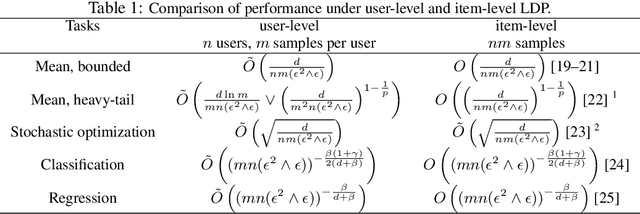Learning with User-Level Local Differential Privacy
Paper and Code
May 27, 2024
User-level privacy is important in distributed systems. Previous research primarily focuses on the central model, while the local models have received much less attention. Under the central model, user-level DP is strictly stronger than the item-level one. However, under the local model, the relationship between user-level and item-level LDP becomes more complex, thus the analysis is crucially different. In this paper, we first analyze the mean estimation problem and then apply it to stochastic optimization, classification, and regression. In particular, we propose adaptive strategies to achieve optimal performance at all privacy levels. Moreover, we also obtain information-theoretic lower bounds, which show that the proposed methods are minimax optimal up to logarithmic factors. Unlike the central DP model, where user-level DP always leads to slower convergence, our result shows that under the local model, the convergence rates are nearly the same between user-level and item-level cases for distributions with bounded support. For heavy-tailed distributions, the user-level rate is even faster than the item-level one.
 Add to Chrome
Add to Chrome Add to Firefox
Add to Firefox Add to Edge
Add to Edge